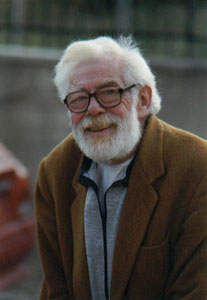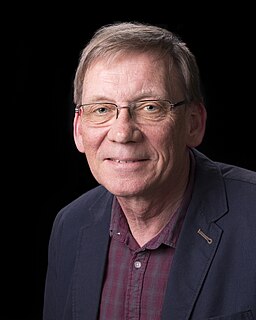Life
Edward Lowbury was born in Hampstead to the recently naturalised Benjamin William Loewenberg (of Latvian-Jewish background) and the Brazilian-born Alice Sarah Hallé (of German-Jewish origin) in 1913. The family name was anglicised to Lowbury at the start of World War 1. His father was a medical doctor and Edward’s middle names were chosen in honour of the surgeon Joseph Lister who had done so much to reduce post-operative infection. His son was to follow closely in Lister’
Lowbury’s secondary education was as a foundation scholar at St Paul’s School (London), where he began to specialise in science. He was also twice winner of the school’s Milton Prize – the first time for a sequence of 40 sonnets. Having won a science scholarship to University College, Oxford, he continued to take an interest in writing, gaining the 1934 Newdigate Prize and the 1937 Matthew Arnold Memorial essay prize.
His initial medical training was at the Royal London Hospital. He was called up to the Royal Army Medical Corps in 1943, where he specialised in pathology and was posted to Kenya. There he was one of the editors of the wartime literary magazine Equator. While still in service, his collection Crossing the Line was given first prize in a competition judged by Louis MacNeice and accepted for publication. On leaving the army, he took employment with the Common Cold Research Unit with James Lovelock as one of his colleagues. Those days are remembered in the last of Lowbury’s “Apocryphal Letters”: Gaia – a letter to James Lovelock. [1]

In 1949 Lowbury was appointed head of the microbiology department at the Medical Research Council burns unit of Birmingham Accident Hospital and also taught pathology as a Research Fellow at the University of Birmingham Medical School. As founder of the Hospital Infection Research Laboratory at what is now known as City Hospital, Birmingham in 1964, he emerged as one of the foremost researchers in hospital infection, particularly in the prevention of burns infection, the problems of antibiotic resistance and skin disinfection [2] and lectured on his specialities throughout the world before retiring in 1979 and being awarded an OBE.
Through clinical trials Lowbury confirmed previous work showing that specialist positively pressurised dressing rooms reduced infections. [3] With John Babb he proved that a specialised filter system could remove bacteria from an airstream and retain them, either reducing infection risk or allowing an already infected patient to be treated in an open ward. [4] He documented treatment of infections with Pseudomonas aeruginosa, noting that the development of carbenicillin resistance used a single mechanism which conferred protection against a range of antibiotics. He further showed that overuse of a new antibiotic led to increased staphylococcus resistance, and that a subsequent reduction in use reversed the effect. His work with Rod Jones contributed to the development of a pseudomonas vaccine. With Harold Lilly he developed tests for effectiveness of hand washes before alcohol became the norm in 1974. These tests were still the basis for European standards when he died. He worked on topical antibacterial compounds with surgeons Douglas Jackson and Jack Cason, eventually leading to topical silver, which continues in use.
His findings were usefully summed up in the Everett Evans Lecture [5] and the Wallace Memorial Lecture [6] that he gave in the years immediately before his retirement in 1979. He then became a founder member of the Hospital Infection Society, of which he served as its first president and where an annual Lowbury Lecture was sponsored in his honour. Other honours included a D.Sc. at Aston University, where he was made Visiting Professor in Medical Microbiology; an LL.D at Birmingham University; Fellowships of the Royal Colleges of Surgeons, of Physicians and of Pathologists and membership of the New York Academy of Sciences.
In 1954 Lowbury had married Alison Young, daughter of the poet Andrew Young, with whom he had three daughters – Ruth (1955), Pauline (1956) and Miriam (1959). He also published regular collections of poetry: Time for Sale (1961), Daylight Astronomy (1968), Green Magic (for children, 1972), The Night Watchman (1974). His poetry was widely anthologised and in 1974 he was made a Fellow of the Royal Society of Literature. Following his retirement he continued to live (and write) in Birmingham until the death of his wife in 2001 and his deteriorating eyesight made it necessary to move to a nursing home in London.








